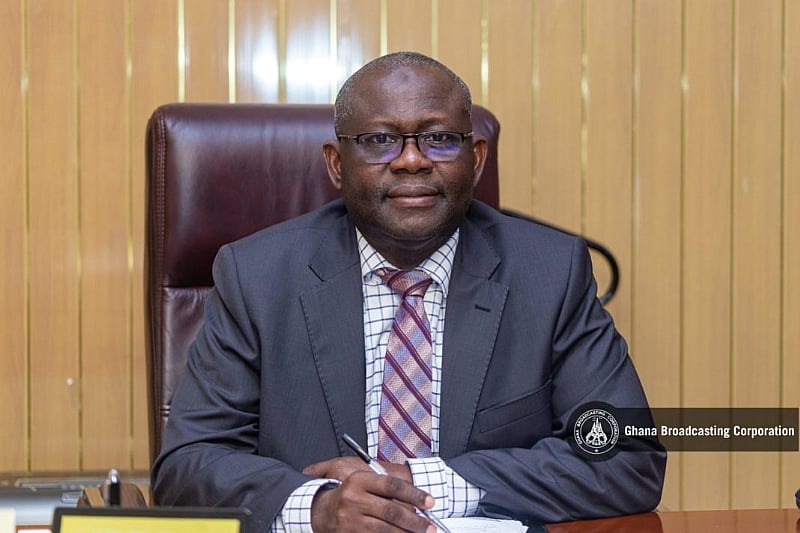The workers of the Ghana Broadcasting Corporation (GBC), united under their union, have unequivocally denounced their Director-General, Professor Amin Alhassan, declaring him persona non grata. This declaration, made at a durbar held in Accra on August 28, 2025, stems from a litany of grievances against Prof. Alhassan, ranging from allegations of gross mismanagement and financial impropriety to accusations of neglecting staff welfare and abandoning the core mandate of the state broadcaster. Sam Nat Kevor, the Divisional Union Chairman, spearheaded the condemnation, accusing the Director-General of clinging to power despite the expiration of his contract in 2023 and the suspension of his salary since March 2025 due to a lack of financial clearance. Kevor stressed that any individual with a semblance of integrity would have resigned under such circumstances, yet Prof. Alhassan remains entrenched, allegedly resorting to intimidation tactics against staff members who dare to voice their concerns.
At the heart of the workers’ discontent lies the alleged mismanagement of GBC’s assets, particularly land transactions that have reportedly stripped the corporation of valuable properties in Tamale and Kumasi. In Tamale, workers returned to their bungalows only to discover they were slated for eviction, with the land subsequently being developed into a China Mall. The Director-General’s claim of ignorance regarding this transaction has been met with skepticism, especially given the lack of transparency surrounding the land’s valuation and the proceeds from its sale. A similar scenario unfolded in Kumasi, where land purportedly designated for retirees was sold under questionable circumstances. The union has persistently demanded disclosure of the sale price, but only received vague assurances that 50% of an undisclosed amount has been paid. This lack of transparency, coupled with the Director-General’s conflicting statements before the Public Accounts Committee, has fueled suspicion and deepened the workers’ distrust.
The workers vehemently argue that Prof. Alhassan’s continued presence at the helm of GBC poses an existential threat to the institution. They accuse him of operating in a manner that jeopardizes the corporation’s financial stability and undermines its credibility. The union has called for the immediate intervention of the appointing authorities, expressing frustration at what they perceive as undue delays by the National Media Commission (NMC) in addressing the situation. They contend that GBC has effectively become a “crime scene” requiring thorough investigation and that the Director-General’s expired contract renders his continued signing of cheques and official documents illegitimate.
The implications of this standoff are profound. The allegations of mismanagement and financial impropriety, if substantiated, raise serious concerns about the stewardship of public resources and the integrity of the state broadcaster. The workers’ declaration of persona non grata represents a vote of no confidence in Prof. Alhassan’s leadership, further exacerbating the crisis and potentially paralyzing the corporation’s operations. The lack of transparency surrounding the land transactions fuels speculation and undermines public trust in GBC. The situation demands urgent attention from the appointing authorities and the NMC to prevent further deterioration of the situation and restore stability to the state broadcaster.
The union’s forceful stance underscores the depth of their frustration and the urgency of their demands. They perceive Prof. Alhassan’s actions as a betrayal of the public trust and a threat to the very survival of GBC. They have called for a thorough investigation into the alleged irregularities and demand accountability for the mismanagement of the corporation’s assets. Their unwavering resolve suggests that they are prepared to escalate their actions if their concerns are not addressed promptly and decisively. The future of GBC hangs in the balance, dependent on the swift and effective intervention of the relevant authorities.
The unfolding events at GBC serve as a stark reminder of the importance of transparency and accountability in public institutions. The allegations against Prof. Alhassan, if proven true, highlight the potential for abuse of power and the detrimental consequences of unchecked mismanagement. The workers’ courageous stand underscores the vital role of unions in safeguarding the interests of their members and holding leadership accountable. The crisis at GBC also raises broader questions about the effectiveness of oversight mechanisms and the need for stronger safeguards to prevent similar situations from arising in other public institutions. The outcome of this standoff will have significant implications for the future of GBC and the broader media landscape in Ghana.


